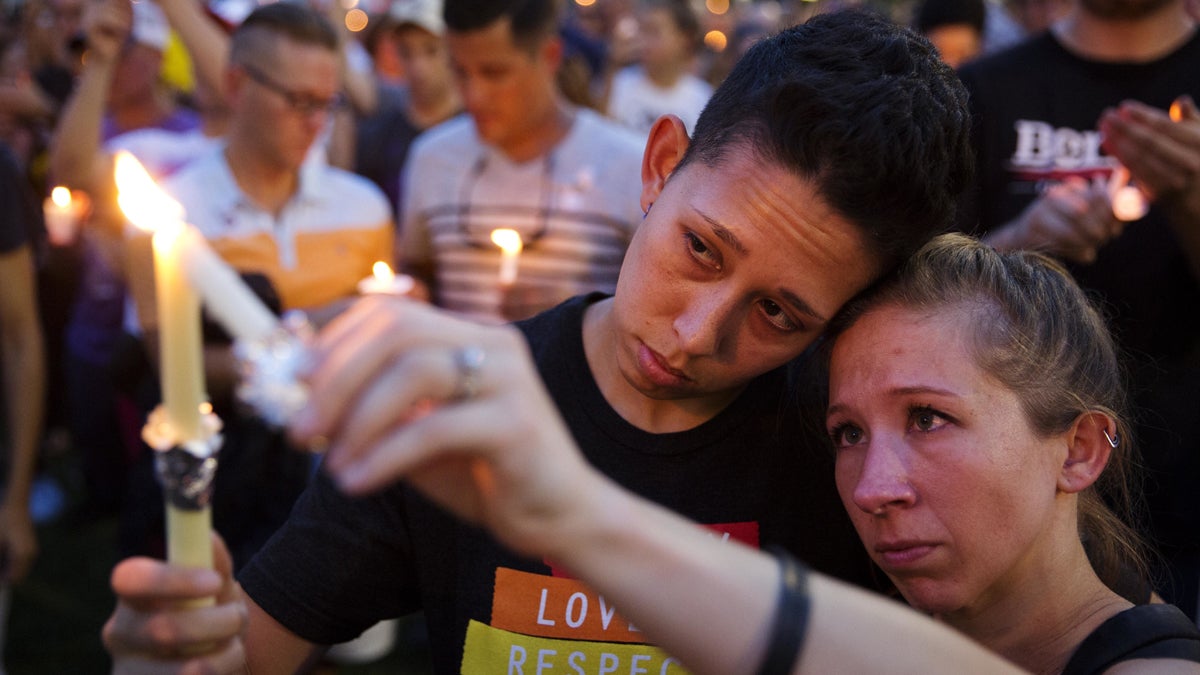Don’t be afraid to seek mental health care in times of uncertainty

Jennifer
The tragedy that unfolded at Pulse Nightclub in Orlando has left the nation reeling in fear, blame, and self-doubt once again. The senseless crime has left many people feeling a sense of anxiety about the world we live in. The LGBT community is left feeling especially vulnerable.
Yet again, we’ve watched terror strike in our own backyard. With such frequent reporting on mass shootings and terrorist attacks, it can be impossible to feel safe anywhere, leading to increased hypervigilance, which can develop into post-traumatic stress disorder. PTSD is potentially debilitating. Survivors of traumatic events like the Pulse shooting are especially vulnerable.
It does not take direct exposure to trauma to be traumatized. It’s not just survivors who might experience symptoms of PTSD. Research done after the 9/11 attacks found that those who consumed more news coverage of the attacks experienced more stress reactions than those who watched less news. As gut-wrenching as news coverage of the shooting in Orlando has been, it can be difficult to turn away. Many of us thirst for the details that can help us feel better about what happened, or perhaps learn how to prevent it from happening again. However, repeated exposure to traumatic images can heighten mood symptoms.
Witnessing traumatic events, either directly or indirectly, can bring up a myriad of feelings that are difficult to navigate. It can often be confusing — especially those who have not been directly impacted — to understand why they may be having strong, emotional reactions. This is completely normal when we see horrible things happen to innocent people. Tragedies like the Pulse nightclub shooting can also bring up feelings about other unresolved traumas. A mental health provider can help someone work through this.
Sometimes, when seeking professional help, we face stigma from our family and peers, and therefore think that we are just being oversensitive, and negate our depression, anxiety, PTSD. Remember, we are all faced with tough decisions every day in life and sometimes when tragedies happen, we are not able to cope with another harsh reality. Seeking the support of a professional, whether it is one time or over several months, can be a huge benefit in dealing with tragedies like the Pulse shooting.
If this or other traumas have left you feeling sad, depressed, anxious, or simply out of the ordinary, the do-nothing approach will probably be ineffective. Instead:
Talk to someone — a spouse, a friend, a therapist. Talking about your feelings and getting positive feedback can make you feel more at ease.
Turn off the news! It is important to know what’s going on in the world, but not at the expense of your sanity. If you must stay abreast of the news, reduce your intake of visual or broadcast news, and instead rely on print media.
Allow yourself to grieve. This tragedy represents a loss for many of us (loss of a sense of security, loss of innocent lives). Whenever a loss occurs, the natural reaction is to grieve. It is better not to fight it.
—
Tiffany Hall is a therapist for, and Akia Feggans is the director of behavioral health services for, Philadelphia FIGHT community health centers.
WHYY is your source for fact-based, in-depth journalism and information. As a nonprofit organization, we rely on financial support from readers like you. Please give today.

